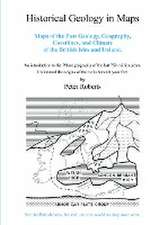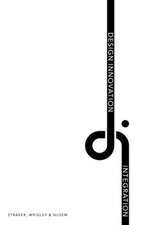Design Thinking Pedagogy: Facilitating Innovation and Impact in Tertiary Education
Autor Cara Wrigley, Genevieve Moselyen Limba Engleză Hardback – 15 aug 2022
| Toate formatele și edițiile | Preț | Express |
|---|---|---|
| Paperback (1) | 283.24 lei 3-5 săpt. | +29.86 lei 4-10 zile |
| Taylor & Francis – 15 aug 2022 | 283.24 lei 3-5 săpt. | +29.86 lei 4-10 zile |
| Hardback (1) | 1000.27 lei 6-8 săpt. | |
| Taylor & Francis – 15 aug 2022 | 1000.27 lei 6-8 săpt. |
Preț: 1000.27 lei
Preț vechi: 1219.84 lei
-18% Nou
Puncte Express: 1500
Preț estimativ în valută:
191.42€ • 207.86$ • 160.80£
191.42€ • 207.86$ • 160.80£
Carte tipărită la comandă
Livrare economică 22 aprilie-06 mai
Preluare comenzi: 021 569.72.76
Specificații
ISBN-13: 9780367438593
ISBN-10: 0367438593
Pagini: 246
Ilustrații: 20 Tables, black and white; 43 Line drawings, black and white; 12 Halftones, black and white; 55 Illustrations, black and white; 20 Tables, black and white; 43 Line drawings, black and white; 12 Halft
Dimensiuni: 156 x 234 x 16 mm
Greutate: 0.52 kg
Ediția:1
Editura: Taylor & Francis
Colecția Routledge
Locul publicării:Oxford, United Kingdom
ISBN-10: 0367438593
Pagini: 246
Ilustrații: 20 Tables, black and white; 43 Line drawings, black and white; 12 Halftones, black and white; 55 Illustrations, black and white; 20 Tables, black and white; 43 Line drawings, black and white; 12 Halft
Dimensiuni: 156 x 234 x 16 mm
Greutate: 0.52 kg
Ediția:1
Editura: Taylor & Francis
Colecția Routledge
Locul publicării:Oxford, United Kingdom
Public țintă
PostgraduateCuprins
1.Introduction 2. Research of Design Thinking Pedagogy 3. Design Thinking Undergraduate Education for Epistemic Fluency 4. Mastering Design Thinking in Postgraduate Education 5. Digital and Professional Design Thinking Education 6. Designing Education Ecosystems and an Ecology of Learning 7. Conclusion. References. Appendix A: Design Thinking Pedagogy Description and Definitions. Appendix B: Related Publications. Appendix C: About the Expert Sidebars
Notă biografică
Cara Wrigley is a professor of design innovation at The University of Queensland and director of the Design Innovation Research Lab (DiLab). Cara leads a team of design researchers on projects spanning education, health care, science, business, and defence, crossing interdisciplinary boundaries. Cara has published extensively on the application and adoption of design, which has been disseminated through a number of books, including Design Innovation and Integration (2021, BIS Publishers, co-authored with Karla Straker and Erez Nusem), Design Innovation for Health and Medicine (2020, Palgrave Macmillan, co-authored with Karla Straker and Erez Nusem), and Affected: Emotionally Engaging Customers in the Digital Age (2018, Wiley, co-authored with Karla Straker). Cara has more than 60 refereed papers in outlets such Design Issues, Journal of Cleaner Production, Energy Policy, California Management Review, ASAIO Journal, and Journal of Cardiovascular Nursing. She is the editor-in-chief of the Journal of Design, Business & Society. Cara holds extensive experience in curriculum development and delivery. During her time at The University of Sydney she developed and delivered a Massive Open Online Course (MOOC) on Design Innovation (2018), rolled out a university-wide Design Major (2018), and launched the Master of Design Innovation and Strategic Design (2019) program. She is passionate about providing positive student and supervisor experiences and has presented at a number of universities on the topic of academic development and PhD supervision. She has advised colleagues and higher degree students on developing efficient and successful ways to collaborate, building professional networks, and working with industry partners.
Genevieve Mosely is a research fellow at the Design Innovation Research Lab (DiLab) and a PhD candidate at The University of Queensland. Genevieve’s research focuses on design education as well as the application of design thinking to help capture new value through better understanding users and their needs. She has practical experience working in partnership with industry, including the Royal Australian Air Force, the Australian Defence College, and TAFE NSW, employing design innovation methods to help gain and sustain competitive advantage. She has published in high-quality peer-reviewed journals including Thinking Skills and Creativity, The International Journal of Technology and Design Education, The Australian Educational Researcher, and She Ji: The Journal of Design, Economics, and Innovation. Her PhD research utilises a qualitative approach to contribute to current discourse on design practice, through specifically drawing attention to design facilitation. Genevieve holds a unique combination of undergraduate and postgraduate degrees in architecture and education, which have been drawn upon in the development of this book.
Genevieve Mosely is a research fellow at the Design Innovation Research Lab (DiLab) and a PhD candidate at The University of Queensland. Genevieve’s research focuses on design education as well as the application of design thinking to help capture new value through better understanding users and their needs. She has practical experience working in partnership with industry, including the Royal Australian Air Force, the Australian Defence College, and TAFE NSW, employing design innovation methods to help gain and sustain competitive advantage. She has published in high-quality peer-reviewed journals including Thinking Skills and Creativity, The International Journal of Technology and Design Education, The Australian Educational Researcher, and She Ji: The Journal of Design, Economics, and Innovation. Her PhD research utilises a qualitative approach to contribute to current discourse on design practice, through specifically drawing attention to design facilitation. Genevieve holds a unique combination of undergraduate and postgraduate degrees in architecture and education, which have been drawn upon in the development of this book.
Descriere
This book highlights the importance of interdisciplinary collaboration and demonstrates that well-implemented design thinking pedagogy can help solve the world’s most difficult ‘wicked’ problems.














